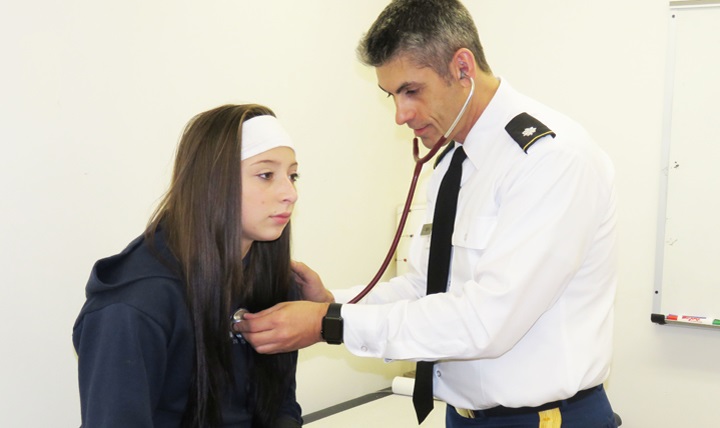News
Concussed children are often overlooked for rehab services

It is widely believed that children with “mild” traumatic brain injuries (more often referred to as concussions) don’t require anything more than rest to make a full recovery. It may be true that these less-severe brain injuries largely resolve on their own, but many require rehab services such as educational support and mental health care to truly make a complete recovery.
Unfortunately, a new study shows that many children hospitalized for these “mild” brain injuries get overlooked and do not receive this type of rehabilitation.
According to a new study published in the journal Pediatrics, more than one in four children with mild brain injuries received no necessary services for rehabilitation.
For the study, the researchers interviewed parents of children with traumatic brain injuries four times over the course of two years after the initial injury. Overall, they saw that children with more severe traumatic brain injuries required more rehabilitation services to overcome functional impairments compared to those with mild injuries. Largely, these children with moderate to severe TBI receive such treatments.
However, a significant number of those hospitalized for less-severe brain injuries do not receive any sort of necessary rehabilitation support.
“Mild brain injuries are more common than moderate to severe brain injuries, so there are a greater number of children who may be at risk of having unmet health care needs after being hospitalized for a mild brain injury,” said study leader Dr. Molly Fuentes of the University of Washington School of Medicine and Seattle Children’s Research Institute, Center for Child Health, Behavior, and Development.
“If children are waiting for services to help them recover or learn how to adapt to their new impairments, not only are their long term functional outcomes at risk of being poorer, they are also missing time in school (making it harder to catch back up) and other activities that are an important part of their development,” Fuentes told Reuters by email.
Fuentes notes that this oversight is particularly significant because children with traumatic brain injuries face unique challenges to heal.
Unlike adults, who are simply trying to recover to their initial baseline at the time of injury, children and teens have still developing brains and must work to not only recover but continue to develop into mature adults.
The team says they were inspired to investigate child TBI rehab services after past studies found that less than half of children hospitalized for brain injuries received rehab during their hospitalization. Even fewer were sent to outpatient rehab facilities after leaving the hospital.
To follow up on this, the team interviewed parents and children one month after the child left the hospital, and then followed up at six, 12, and 24 months after. This data collected from this included 123 children with mild traumatic brain injuries, and 47 children with severe TBI.
Overall, car crashes were the most common cause of brain injuries, though the researchers note that many of the milder injuries were the result of falls.
Children with moderate to severe brain injuries faced more significant impairments, including physical, cognitive, and academic challenges. IN comparison, children with milder injuries were more likely to face academic, mental health, and cognitive challenges.
Over time, the reported need for educational support after injury increased, with a significant number of kids showing unmet needs for academic health and treatment from



